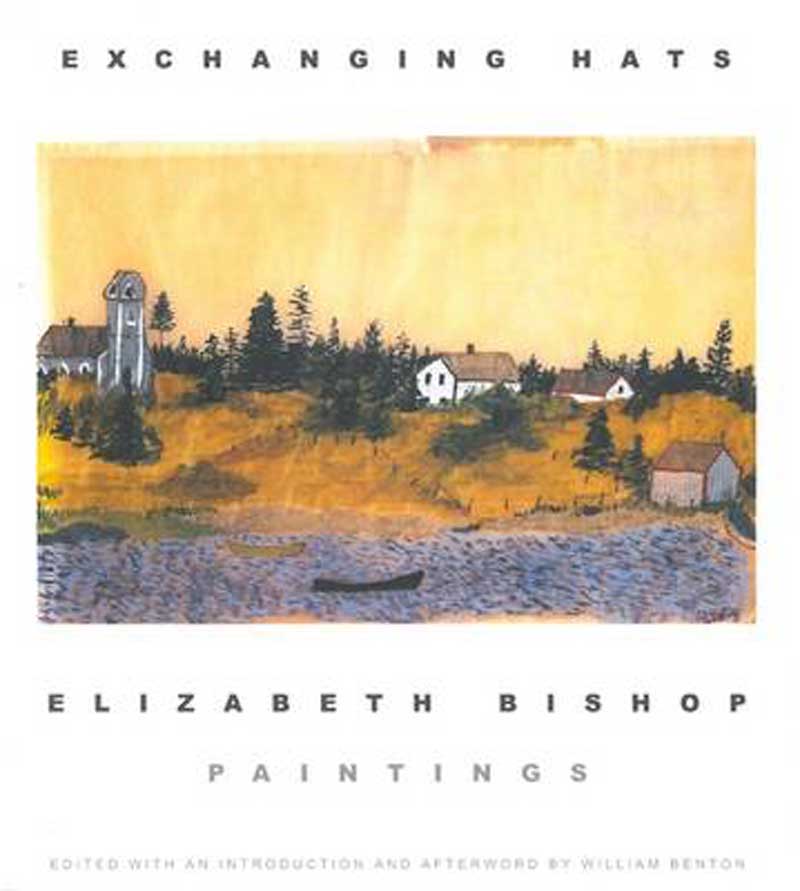Exchanging Hats
Elizabeth Bishop was a painter throughout her life, although few were aware of her originality as an artist. It was not until 1993 that her forty surviving paintings were tracked down, identified and exhibited by the poet and art critic William Benton, in a process whose frustrations and serendipities he describes in his introduction. Reproduced for the first time in the original, hardback edition of Exchanging Hats in 1997, Bishop's subtle, confident artworks illuminate the "painterly" qualities of her poetry.
This revised edition of "Exchanging Hats" contains an updated introduction, revised and corrected details for the provenance of each painting, and a new afterword locating Bishop's paintings within the wider context of contemporary art.
This revised edition of "Exchanging Hats" contains an updated introduction, revised and corrected details for the provenance of each painting, and a new afterword locating Bishop's paintings within the wider context of contemporary art.
About the author
Elizabeth Bishop is one of the best-loved American poets of the century. She won the Pulitzer Prize, the National Book Award, and the National Book Critics Circle Award during her lifetime. Her "Complete Poems", her "Collected Prose and One Art: Collected Letters" are published by Chatto and Windus. A book of her uncollected poems, drafts and fragments, "Edgar Allan Poe" and the "Juke-Box", edited by Alice Quinn, is published by Carcanet Press.
Reviews
"Bishop's... paintings are not "interesting" forays into an essentially alien form, nor are they divorced from the central intelligence of the poems... they come from the same extraordinary source and make a justified claim to attention in their own right" – Jamie McKendrick, Times Literary Supplement
"You can see Klee or Vuillard in her paintings and her poetry, not because she imitated them but because she liked them and saw what they saw... As Benton says and this delightful book shows, Bishop was 'her own best influence'" – Lavinia Greenlaw, Independent on Sunday
"Mirrors... throughout her work pretty consistently stand for the imagination... did she realise that the act of looking is always reflective? No matter how intently she searched nature for an identity, she could see only what her eye and mind perceived. Geography could provide her with no more than a reflection in the transparent glass of her own polished window" – Anne Stevenson
"You can see Klee or Vuillard in her paintings and her poetry, not because she imitated them but because she liked them and saw what they saw... As Benton says and this delightful book shows, Bishop was 'her own best influence'" – Lavinia Greenlaw, Independent on Sunday
"Mirrors... throughout her work pretty consistently stand for the imagination... did she realise that the act of looking is always reflective? No matter how intently she searched nature for an identity, she could see only what her eye and mind perceived. Geography could provide her with no more than a reflection in the transparent glass of her own polished window" – Anne Stevenson


